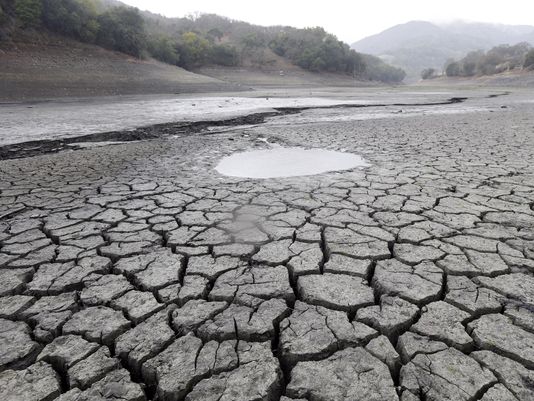With 79% California in “extreme drought” status, and the agriculture industry suffering its greatest loss of water ever recorded in state history, the $50 billion annual sector will only suffer about $1.5 billion in losses or 3%, of revenue according to a new UC Davis Center for Watershed Sciences study.
The direct cost to the agriculture industry will include $810 million in crop losses and $500 million in extra energy costs for drilling and pumping more groundwater. Despite farmer and rancher resilience, the industry could implode if the drought keeps going for the next two years: “Failure to replenish groundwater in wet years will continue to reduce groundwater availability to sustain agriculture–particularly more profitable permanent crops–during California’s frequent droughts,” said the report.
The study’s results mirror a preliminary report issued in May that reassured the industry that the economic impact of the appeared to be minimal for 2014. Two months before, the federal Central Valley Project and the State Water Project announced, for the first time in history, a “zero allocation” of water to local agencies and districts in the San Joaquin Valley.
Yet after both of California’s powerful Democrat Senators bucked environmentalists and fought in Washington, D.C. and Sacramento for reconsideration, the SWP raised its allocation to 5% in April 2014.
Of California’s 8 million acres of irrigated land, only 410,000 acres or 5% went fallow this year due to lack of water. About 3.2 million acres, or 40% of California’s irrigated crop land, is planted with trees and vines that might have died off without ground water pumping and the water allocation.
The updated report estimates that the industry this year will lose 6,400 jobs in crop production, or 3% of the average 200,000 farm worker jobs in the San Joaquin Valley. That works out to about 1.5% of the state’s total average farm employment of 400,000.
The study highlights the creativity and resilience of state’s farmers, ranchers and water districts in responding to a second continuous year of drought. Economic actions included transferring water to high-value crops.
The report recommends enhancing California’s water trade market and streamlining the regulations around water transfers. This year, some transfers took several months and many bureaucratic signatures before being approved.
The UC Davis study suggests that as the coming California water bond debate picks up steam that watersheds, storm water, groundwater aquifers, and water supply systems be treated as an integrated system statewide.
From July 15th to July 29th, Chriss Street is teaching “Entrepreneurship and Capitalist Business Strategy” at Ho Chi Minh University in Vietnam

COMMENTS
Please let us know if you're having issues with commenting.